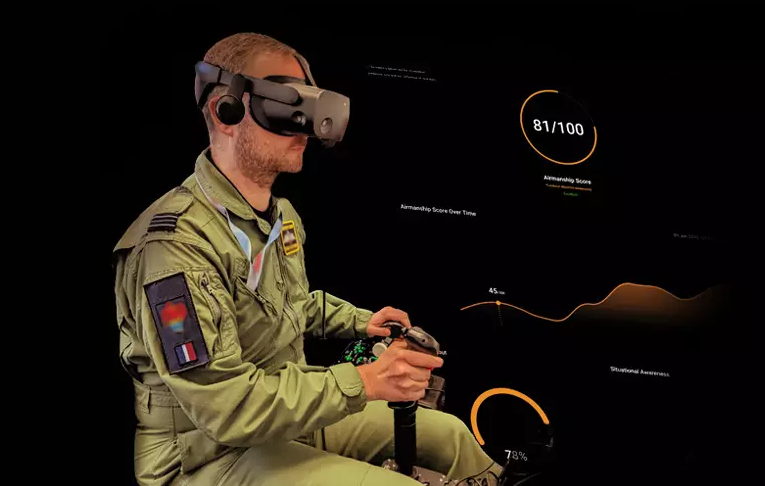Virtual reality (VR) has struggled to transition too far beyond gaming circles and specific industry use cases such as medical training, but with the burgeoning metaverse movement championed by tech heavyweights such as Meta, there has been a renewed hope (and hype) around the promise that virtual worlds bring.
Just yesterday, Los Angeles-based AmazeVR announced a $17 million tranche of funding to scale its virtual concert and “music metaverse” platform. And last week we saw the mighty Epic Games invest in U.K. metaverse infrastructure company Hadean as part of the Fortnite-creator’s broader metaverse expansion plans. Hadean itself is powering simulated environments spanning everything from Minecraft to land warfare, having recently signed a contract with the British Army.
And it’s against that backdrop that six-year-old Irish startup VRAI is setting out to capitalize on the surge in VR interest, raising a fresh tranche of funding to extend its flagship “hazardous environment awareness training” (HEAT) product into more environments — starting with the offshore wind industry.
Founded out of Dublin in 2016, VRAI has built a simulation platform that meshes VR with data capture, analysis and machine learning (ML) to give customers measurable insights and improve training outcomes. The company already has some notable clients, including British multinational arms and defence contractor BAE Systems, which recently inked a deal with VRAI to deliver military training via VR.

Warfare aside, it’s becoming clear what benefits VR can bring to hazardous environments which, by their very definition, are dangerous to human life — recreating such scenarios in a virtual space reduces risks and many of the other costs associated with traditional training.
“Traditional training for risky, remote and rare operational environments is expensive, difficult to scale and very difficult to measure in terms of its effectiveness,” VRAI managing director Pat O’Connor told TechCrunch. “Traditional simulators are only available to elite roles, they are not scalable, and are often as expensive as the actual piece of equipment.
Energy crisis
Wind turbines, often based far out at sea, are becoming larger and more complex, raising significant occupational hazards for maintenance and installation workers in the field — be it from extreme weather conditions, falls, drowning and more. While VR can’t replace the need to be physically present at a site, it can reduce the amount of time required to be out there for training purposes.
With that in mind, VRAI is refocusing its efforts on industries beyond aerospace and defence to target the offshore wind industry — a timely manoeuvre given Europe’s energy predicament, exacerbated by the ongoing war in Ukraine. The U.K. government recently revealed plans to reduce its reliance on fossil fuels by raising its offshore wind target by 10 gigawatts (GW) to 50 GW by the end of the decade, and it also pledged to reform planning processes and scythe approval times for new installations.
Other countries are looking to up their offshore wind game too — earlier this week, Portugal raised its debut offshore wind power auction target to 10 GW, having previously set it at 6-8 GW. The broader European Union, meanwhile, claimed around 14.6 GW of offshore wind capacity last year, a figure it says is set to grow 25 times by 2030.
However, any market looking to increase its wind power capacity also has to increase the resources they throw at it, and this includes upskilling the workforce — so VRAI’s entry to the fray could hardly have come at a better time.
“We believe our technology can help scale the offshore wind workforce faster, safer and with more insights,” O’Connor said. “We have initially focussed on industries that have a long tradition of simulation such as aerospace and defence, but our vision is to democratise simulation training by bringing high-end simulation capability — once the sole domain of elite roles such as pilots, surgeons and F1 drivers — to whoever needs it, whenever they need it, wherever they need it.”
Training day
While VRAI is open to working with any industry, it’s looking to address a specific pain point in the renewables space, with some studies suggesting that one of the major stumbling blocks preventing oil workers from transitioning to adjacent industries such as wind is the cost of training — a cost they often have to absorb themselves. And VRAI goes some way toward addressing this.
“The wind energy industry’s Global Wind Organisation (training standards body) has stated that 500,000 trained technicians are required to meet the surging demand of renewable wind energy globally in the next four years,” O’Connor said. “Current training for this industry is very traditional, and requires people to travel to remote locations to train on physical equipment. At VRAI, we can train those people in VR instead, providing target fidelity simulation ‘at the point of need’.”
What this means is that training comes to the person, rather than the person having to take time out of their existing schedules to travel.
“We believe that industries that have an above-average spend on training, and focus on safety, where the work is risky, remote or rare, will benefit most from this technology,” O’Connor said. “VR simulation has the added benefit of reducing the cost and carbon footprint of traditional training.”
To help extend its reach into the offshore wind industry, VRAI today revealed that it has raised £3 million ($3.2 million) in a round of funding led by Northstar Ventures, a VC firm based in Newcastle Upon Tyne, near VRAI’s U.K. hub in Gateshead.
VRAI counts seven employees in its current Dublin HQ, with its recently launched U.K. subsidiary in England’s north-east serving as home to four full-time employees — with 10 more hires in the works in the coming year.
“This investment allows us to help scale the offshore wind workforce, which is critical to society’s plans for transitioning from fossil fuel dependency,” O’Connor said. “Our products will also help to ensure our military personnel have the very best training and insights, at a lower cost and with lower carbon footprint, in the face of increasingly complex operational environments.”































Comment